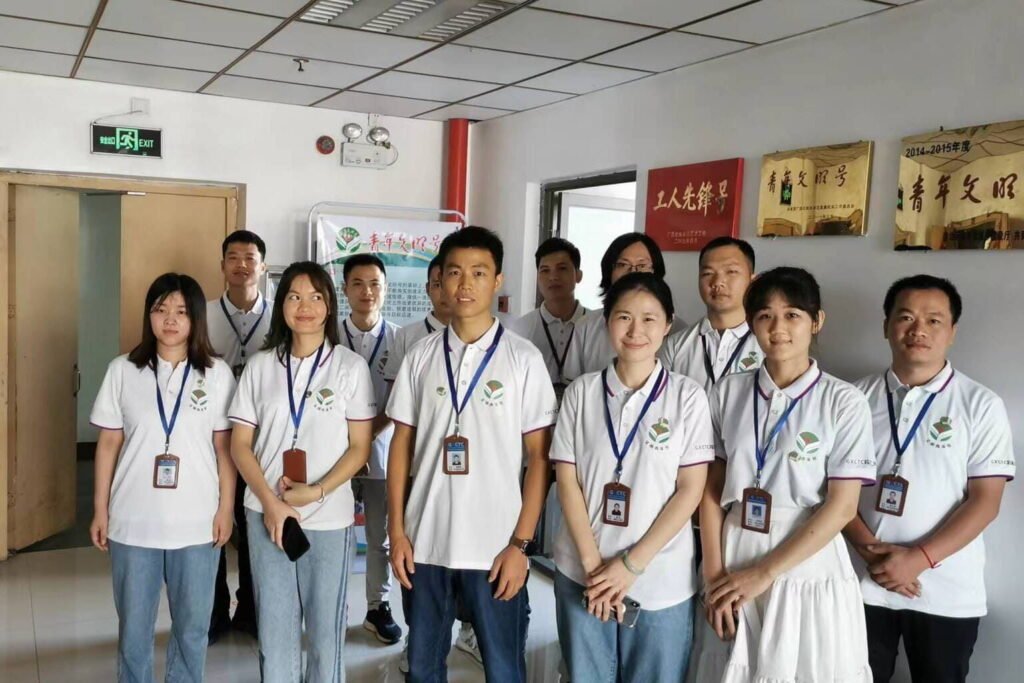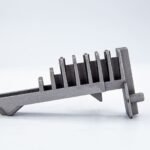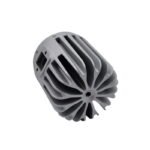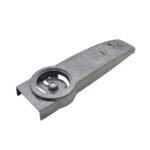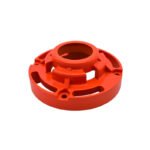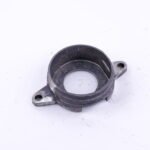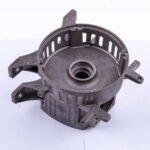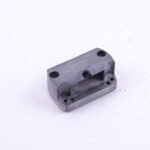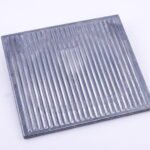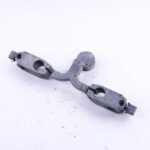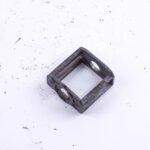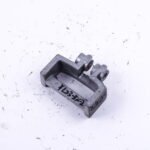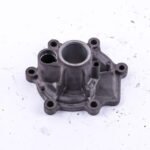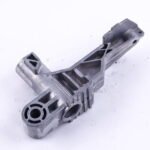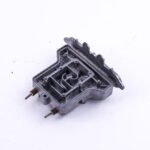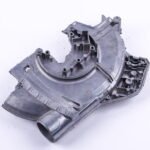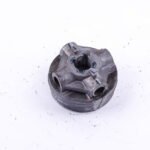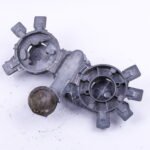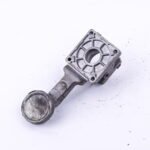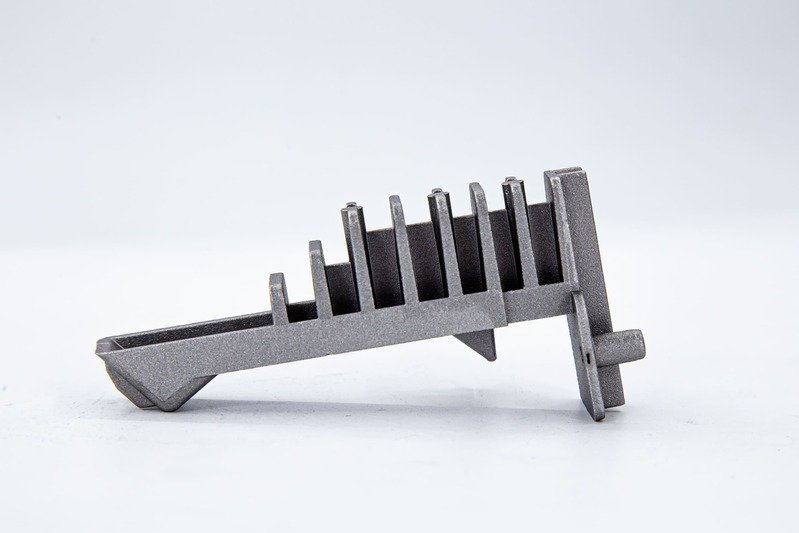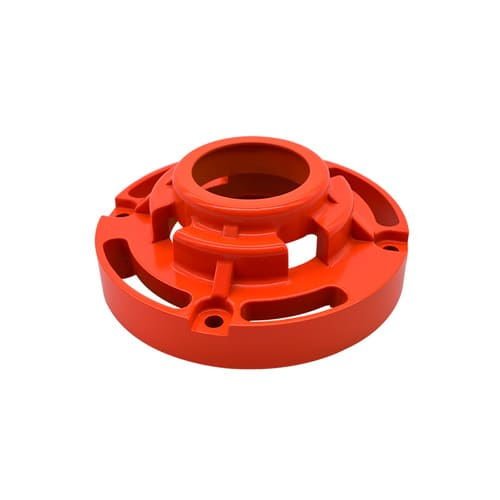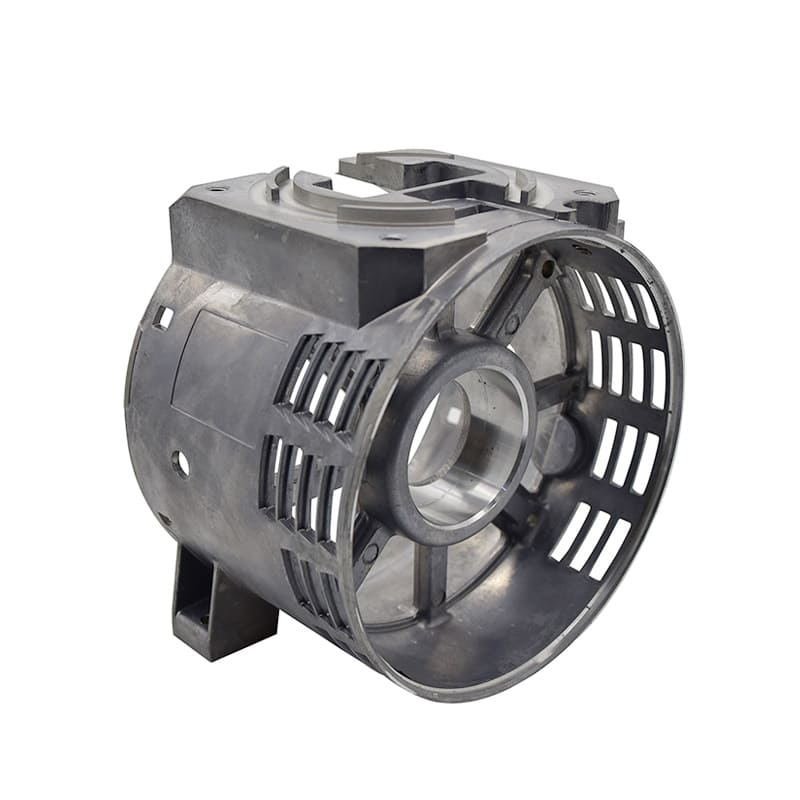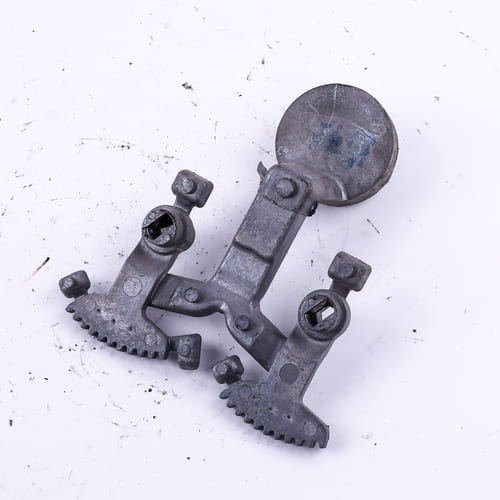Aluminum die casting is a production process whereby aluminum is heated to extreme temperatures and forced into reusable casting molds, otherwise known as dies. This method allows for exceedingly accurate and precise production of intricate aluminum products.
At Cixi Aida Metal, we even have the means to produce custom parts thanks to our incredible machinery and highly skilled technicians.
It is not easy to introduce all aspects of aluminum die casting , so we have prepared a lot of information on this page for you to delve into. To make sure you can find the information you want quickly, we have prepared this content directory that will jump to the corresponding location when you click on it.
1) Bulk Production
After designing a high-quality custom mold, bulk production is easily achievable. This is because the molds are heat resistant and, most importantly, reusable.
Therefore, it’s pretty straightforward to replicate the same design with just one mold.
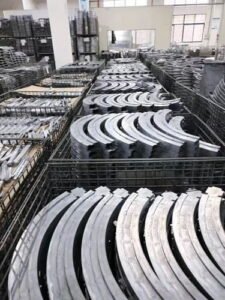
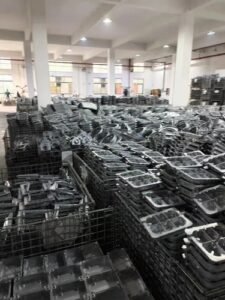
2) Fast Turnaround Time
With such complex designs, it’s easy to assume that your aluminum die cast product will take a long time to produce.However, the initial design process is often the most time-consuming element.
Aluminum die casting production is actually one of the fastest ways to create such products thanks to our next-level equipment.
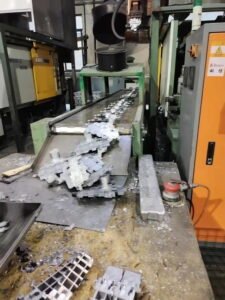
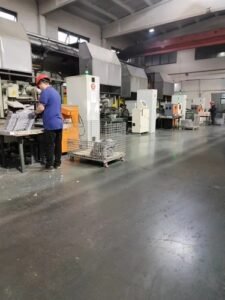
3) Supports Complex Design
No matter how intricate or shapely your design may be, you can create a complex design with close tolerance through aluminum die casting.
This means that the final product is guaranteed to match your design specifications.
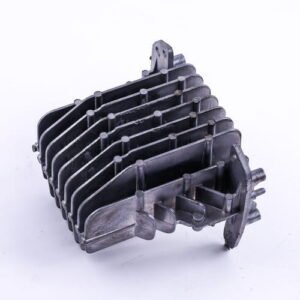
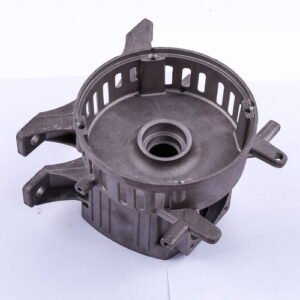
4) Lightweight Yet Durable
Aluminum die casting enables you to create lightweight products without compromising on strength.
Therefore, no matter whether your product has thin walls, a complex design or otherwise, it’s strong enough to withstand excessive pressure or damage.

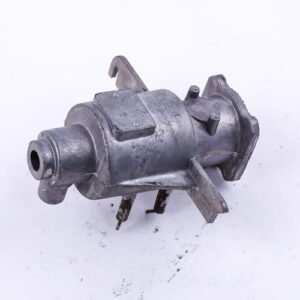
Aluminium die casts have many great qualities. These include thermal quality, impact resistance, lightweight, strong performance under temperature, etc. These make them suitable for use across several industries.
(1.) Construction:
You can use aluminium die-cast parts to construct buildings, bridges, shop fronts, window frames, superstructures, building frames, etc. You can also use it to produce plumbing fixtures such as thermal valves, pipe fittings, etc. To use aluminium in the construction sector, the cost largely depends on the weight of the construction materials.

(2.) Automotive:
Because aluminium alloys are lightweight, they are used to manufacture various vehicle parts. These include: Engine bracket parts, lightning parts, engine room parts, car audio parts, seat belt parts, wiper parts, etc
The following are automotive components made with aluminium die casts: Pistons, connecting rods, transmission housings, carburettor housing, steering gear housing, clutch housings, wheel hubs, valve covers, shades poles, stepper motors, heat sinks, alternator housing, forks, stators, headlight, etc. Also, some components of electric vehicles made with aluminium die casts include gearboxes, heat sinks, intake tubes, chassis, car rims, engine cylinder heads, etc.

(3.) Electronics:
Aluminium die casts are essential components of several electronic products and devices. Electronic parts made with aluminium die casts include: internal frame, electronic device casing, heat sink, cooling fan, compressor cylindrical head, compressor spirals, etc.

(4.) Furniture
They are used to manufacture furniture materials such as hinges, knobs, door locks, etc.

(5.) Aerospace:
The Aerospace industry also makes use of aluminium die-cast parts. They are used to produce aerospace parts like engine piston heads, fuel system parts, electronic enclosures detention, ring parts, airline handrail, seat components, window frames, engine housing, etc.

(6.) Health care:
Medical equipment such as dialysis equipment, ultrasound systems, monitoring device, surgical lamp base, etc are made with aluminium die casts.

(7.) Industrial sector:
Some industrial parts made with aluminium die casts include impeller, rotor and stator, valve, shaft sleeve, etc

(8.) Energy Industry:
They are used to produce solar panels, wind turbines, etc.

(9.) Culinary Industry
They are also used to manufacture cookware lids, oven interior and exterior, blenders, cooking pots, gas stoves, electrical cooker frames, etc.

(10.) Telecommunication Industry:
Telecommunication equipment such as base plates, and heat sinks are manufactured with aluminium die casts.

(11.) Home appliances:
Aluminium die casts are used to produce domestic appliances such as washing machine rotors, brake wheel pulleys, ceiling fan covers, vacuum cleaner bodies, exterior door levels, roller latches, etc.

(12.) Lighting:
Aluminium LED street light housing, LED heat sink systems, etc are manufactured with aluminium die-cast parts.

(13.) Electrical:
Aluminium die casts parts are used to produce RF filter repeaters, LED modules, tower housings, electrical meters, etc.

After heating aluminum to liquid state, it is injected into the die-casting machine’s mold and molded by die-casting to finally get various shapes of parts.
The cost of aluminum die-cast parts has many aspects, but the main ones are as follows
Material
We use aluminium alloy in our productions. The cost of A380 is $1.3-$1.4 per kilogram. The cost of ADC12 is around #2-$3 per kilogram. However, the exact total cost of aluminium alloys depends on the quantity of your order.
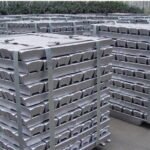
Maching
The cost of CNC machining is around $10-$200 per hour. Although CNC machining appear expensive, it is worth the price.
Casting Cost
The aluminium die casting tooling costs from $0.2 to $20 The exact cost of die casting depends on the size and complexity of your order.
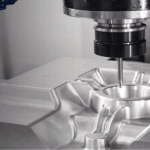
Surface Treatment
Powder Coating: The average cost is $1per. The exact cost depends on the part size and the extent of the surface area to be coated.
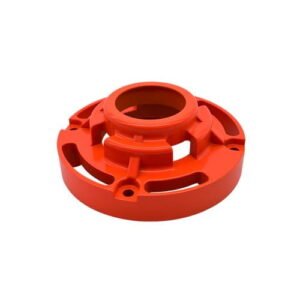
Mold Cost :$3000
Unit price :$1.14
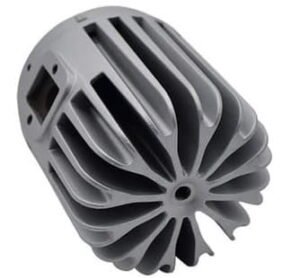
Mold Cost :$2900
Unit Price :$0.42
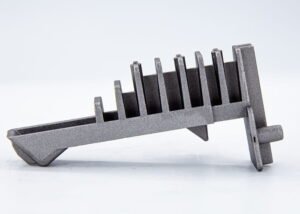
Mold Cost :$2860
Unit Price :$0.57
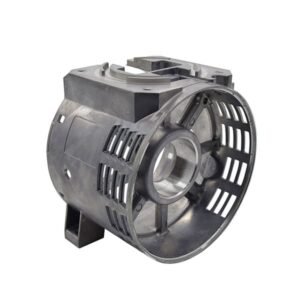
Mold Cost :$5000
Unit Price :$4
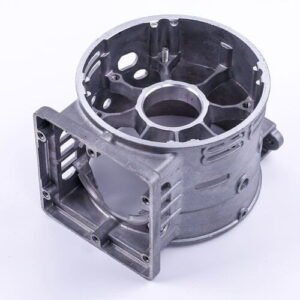
Mold Cost :$5000
Unit Price :$4

Mold Cost :$3500
Unit Price :$1.2
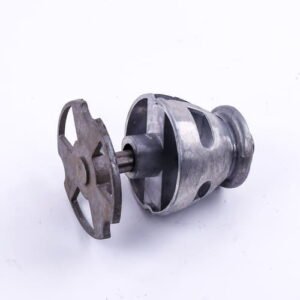
Mold Cost :$2500
Unit Price :$0.9

Mold Cost :$4.5
Unit Price :$6
Duration Estimation
How long can ship to you?
The production lead time of an order depends on the quantity and complexity of the customer’s order. However, our turnkey service enables us to have a quick turn-around time. Also, we have a production capacity of 50,000 pieces monthly.
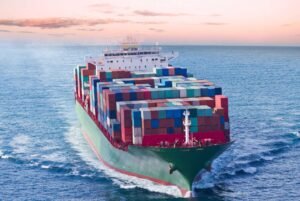
There are different aluminium alloys you can use for die casting. The common alloys are A380, 383, B390, A413, A360,ADC12 and CC401. At Castingod, we generally use the Japanese grades A380 and ADC12. Also, we use other aluminium alloys to meet our customers’ requirements.
- A380: This is one of the commonest alloys used in aluminium die casting. It is lightweight and has excellent physical and mechanical properties. It is strong at high temperatures. It also has excellent fluidity and pressure tightness. It is resistant to hot cracking.
- A383: This alloy is mostly used to make intricate components requiring very specific die-filling characteristics. It also has higher strength at high temperatures with less possibility of cracking under heat.
- A360: It is really hard to cast. So, many die casts manufacturers do not often use it. It has higher strength at high temperatures, higher corrosion resistance, better ductility, etc.
- A413: This contains an appropriate balance of physical and mechanical properties. It does not crack. It also has good pressure tightness. It is suitable for die casting hydraulic cylinders.
The different grades of aluminium die casting
There are different grades of aluminium which include: 1100, 6061, 3003, 5052, 2014, 2024, etc.
- 1100 Aluminium: This is the purest grade of aluminium. It does not harden like other forms of metals. However, it has high corrosion resistance and weldability. It also has high thermal conductivity and can be shaped into different shapes and products. It is not recommended for heat treatment.
However, because of its deductibility at annealing temper, you can use 1100 Aluminium at a lower temperature. Also, it is corrosion-resistant. So, it is used to produce cooking utensils, etc.
- 3003 Aluminium: This is pure aluminium that contains some manganese to increase its strength. It is generally economically and can be used in most applications. Although it can be used for cooking utensils and pot lids, it cannot handle high temperatures.
- 6061 Aluminium: It is one of the commonest alloys for extrusion. It has higher resistance, welding properties and strength. It is mostly used to manufacture products requiring a high level of wear and tear. 6061 Aluminium has high corrosion resistance. So, it is preferable in situations where there are high levels of humidity.
- It has ultimate tensile strength of almost 42,000 psi. It yields strength of almost 35,000 psi. It has an elongation of 8% to 10%, depending on the thickness of the inches. Although mould steel is a bit harder than alloy 6061, it can flex under impact.

What are the common alloys used in die casting?
Aluminium, Copper, magnesium, silicon, zinc, tin, and lead. However, aluminium is the most used alloy.
What are the common die cast aluminium alloys?
A380, A360, A390, A413, and ADC-1, 3003, 6061, 5052, 6063.
How is an aluminium alloy created?
An alloy is created by mixing two or more types of metal to give more desirable features such as higher melting temperature, greater strength, etc.
Can I cast aluminium in a plastic mould?
Yes, but you can only use it with lower melting temperature non-ferrous materials such as magnesium, zinc, aluminium, etc.
What are the benefits of die casting?
- You can use a mould design to impart all features in one process.
- It enhances high production rate. You can produce hundreds of thousands of castings in a short time but with just one mould. Also, it is cost-effective.
- You can manufacture components with thin walls.
- It has excellent accuracy. There is usually no need for secondary operations again. This is because the casting of a part creates intricate net shapes. In any case, where there is a need, it only requires minimal secondary operations
- The tolerance of die-cast products are tighter.
Why is aluminium preferred to other alloys in die casting?
- Aluminium is lightweight, stiff, fully recyclable, has high electrical conductivity, high operating temperatures, high elasticity, outstanding strength to weight ratio, REI and EMI shielding, etc.
- Aluminium is resistant to weather.
- It is very strong. It has the strength of normal construction steel. It conducts electricity and heat almost like copper.
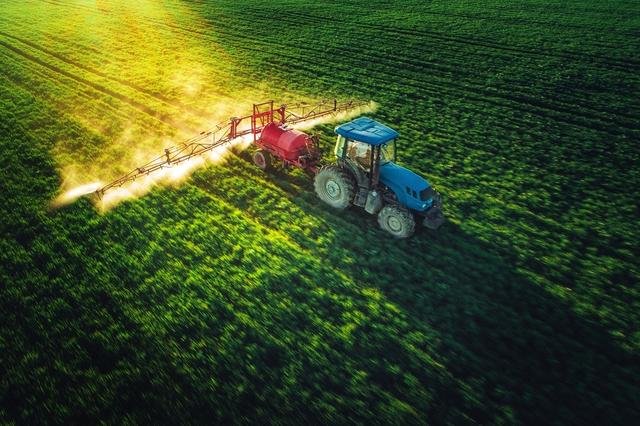
What is cold pressure die casting?
It involves labelling the molten from the crucible into a shot sleeve. A hydraulically operated plunger will push the metal into the die. The extra material is used to force additional metal into the die cavity to compensate for shrinkage. It is most preferable for metals with high melting points.
What is the commonest form of aluminium?
The commonest form of Aluminium is Aluminium Sulphate.
What is the melting point of aluminium?
660.3°C. It has a higher melting point than other metals such as iron, brass and copper
What are the common methods of aluminium castings?
Die casting, sand casting, and permanent mould casting (gravity die casting).
What are the two main die casting processes?
Hot pressure die casting and cold pressure die casting.
What is hot pressure die casting?
It involves injecting molten metal into a hardened steel mould. It will then solidify under pressure before ejection. The processes of hot-pressure die casting are: alloy melting, die preparation, injection of molten metal, solidification, ejection, and trimming/machining.
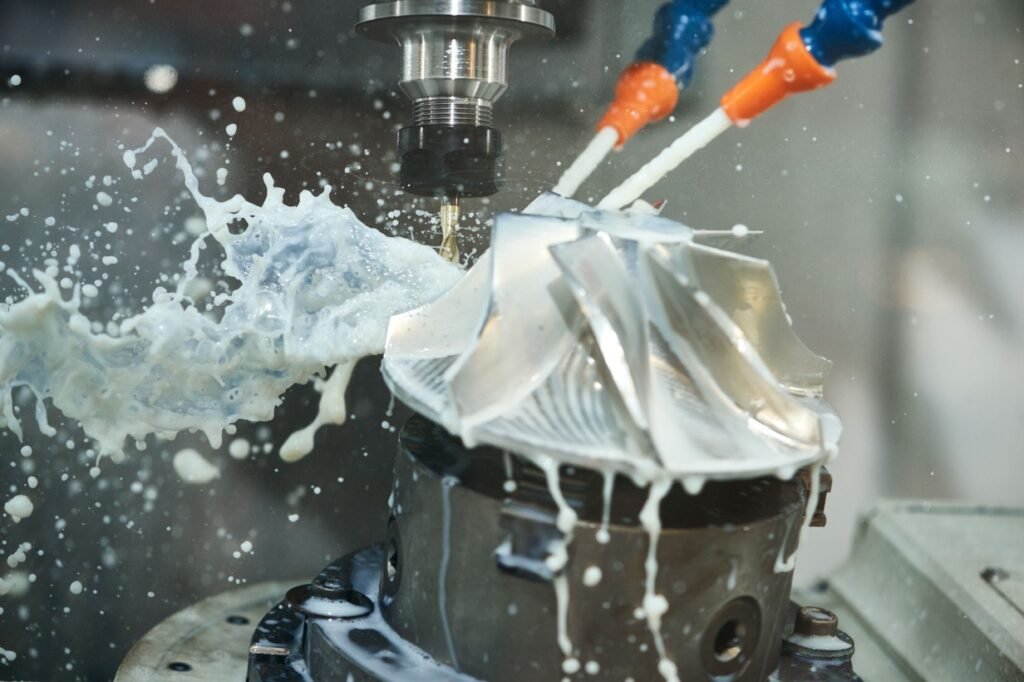
What is gravity die casting?
It is also known as permanent mould casting. It involves pouring molten metal from a vessel into the mould. The mould cavity is filled with gravity with no additional force. Sand cores are used to incorporate cavities and undercuts into the die cast.
What is investment casting?
Investment casting involves several procedures. A wax pattern is dipped into a refractory slurry, and then heating the pattern to melt. The wax is removed and the molten metal is poured into the shell. It is a developmental manufacturing process that converts molten metal in a single operation to precision, engineered components. This is often with the efficient use of materials and energy.
What are the common surface treatment options for aluminium die casting?
Powder Coat, Chemical Film, Anodising, etc.
Powder coating is applied as dry powder and then heated. It gives flexible, high-quality finishes. The two types of powder coating are thermosets and thermoplastics.
Chemical Film is a chemical conversion coating in which chromate is applied to aluminium. It is applied by dipping, spraying, or brushing it. It is used to passivate aluminium as it protects the metals. The different types of Chem film are AMS-2473 & 2474, MIL-C-81706, MIL-DTL-554, and AMS-C-554.
Anodising refers to an electrolytic process for producing thick oxide coatings on aluminium. It converts the metal surface into a decorative, corrosion-resistant finish. The aluminium is immersed in an acid electrolyte bath. A cathode is also mounted to the inside of the anodising tanks. The electrolyte release the oxygen ions. The ions will combine with the aluminium atoms at the surface of the part being anodised.
How do I choose the best aluminium alloy in production?
The choice of alloy usually depends on the type of products you want to manufacture. A360 is preferable for producing automobile controller shells because of its high pressure-tightness and corrosion-resistant properties. A390 is ideal for automotive engine slicks because of its high heat resistance. A380 alloy is preferred in producing engine brackets, gearbox, furniture, chasis, etc because of its excellent casting properties. At Diecastingod, our team of experts are on board to choose the best alloy for your orders.
What is the maximum pressure that can be applied in a pressure die casting?
It is 500kg/cm². If the pressure is above 500kg/cm², the cast may damage. Note that casting with lesser hardness has lesser maximum pressure limit
What are the good design practices for die cast parts?
- All edges and corners should have a fillet.
- There is need for sufficient draft to extract the casting from the die.
What is sand casting?
Sand casting is pouring a liquid material into a mould containing a hollow cavity of the desired shape. Thereafter, allowing the material to solidify.
Does die cast metals rust?
This depends on the type of metal. Non-ferrous metals like aluminium contain minimal iron. So, they do not rust. On the other hand, ferrous metals contain more iron and can rust. So, die-cast parts made with ferrous metals like stainless, carbon, and alloy steel can rust.
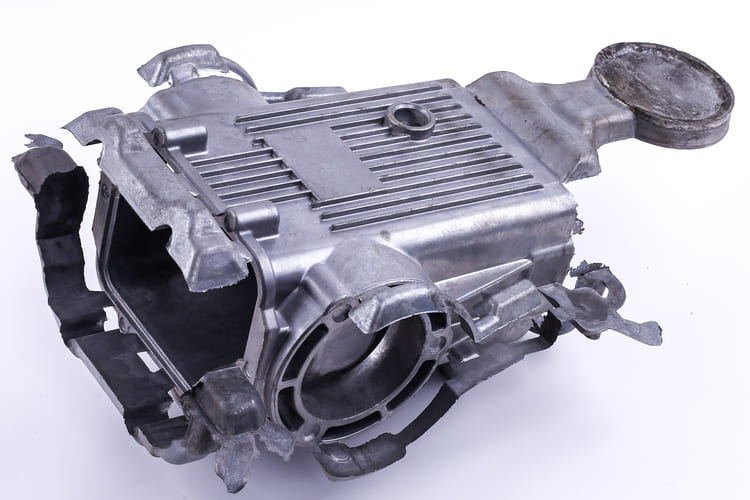
What are the common defects in aluminium die casting?
Common casting defects are in five major categories. These are shrinkage defects, pouring metal defects, metallurgical defects, gas porosity, and mould defects. Some of the defects in aluminium die casting include erosion, crack, friction, ablation, delamination, adhesion marks, indentation, impression, cold isolation, flow marks and patterns, turtle, cracks, etc.
What causes aluminium to rust?
The impingement of a high-speed water jet on the aluminium body causes aluminium to rust.
How can I stop aluminium from eroding?
The best way is to remove oxidation and seal it from moisture with a plastic coating.
How many years does it takes for aluminium to decompose?
It takes around 250 years for aluminium to decompose. It is one of the most recyclable materials.
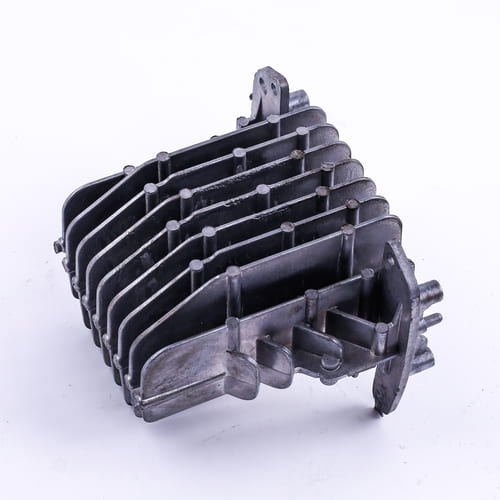
When you are purchasing die castings, the main thing is to audit the factory to see if the factory is real, how the factory equipment, whether there is a quality inspection system, you can also choose the size of the company according to your demand.
- Is it a real factory and not a third party
- Size of the factory and equipment
- Does there have a full quality system
- clients that they have worked with before
- Payment term
- Lead time
- Shipping Term
+20 Years of Industry Experience
We bring our wealth of experience on board in executing your orders. We have been in the die casting industry for over two decades. So, we have vast industry knowledge and experience.
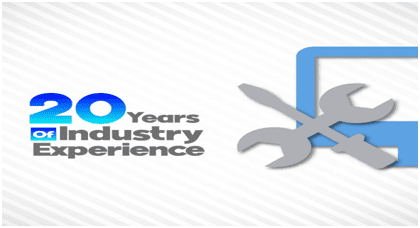

+Experienced and Skilled Workforce
Our team of experts are front-line professionals who have cut their teeth in the industry. With about 80 skilled and experienced workforce, be assured of high-quality custom products that suit your specifications.
+Customized Solutions
We adhere to even the littlest details given by our customers. We manufacture our products per each customer’s specifications. We work hand-in-hand with our customers to ensure their products meet the specific requirements. Our leading-edge equipment coupled with skilled professionals enables us to produce customized products, irrespective of the size, shape or industry.
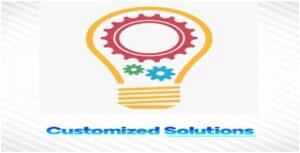

+Turnkey Service
The entire production processes take place in our facility; ranging from mould making, casting machining to surface treatment. Our turnkey service enables us to supply quality die-cast products at competitive pricing.
+ Exceptional Customer Service
Our customers are an integral part of us, and so we prioritize your satisfaction. We have the customer service team on standby to attend to you. From the sales team, technical team to the quality control department, you can be certain there is someone to attend to your needs.


+ On-time delivery
We swing into action immediately after you placed your order and we deliver within a short time frame.
+ Quality
We have invested heavily in our facilities and human resources. This is tailored towards meeting your expectations. We have a wide range of quality laboratory equipment to verify our production processes and ensure quality productions.
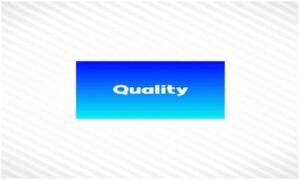
--- Our Quality Assurance Equipment Lab
(1) Mitutoyo BH710 CMM
(2) Buehler Metaserv 3000 Grinder/Polisher
(3) Brown & Sharpe Mistral 775 CMM with PC DMIS CAD Pack
(4) S-T 30″ Optical comparator
(5) Nikon Eclipse MA 100 Microscope
Other quality assurance equipment we use include cylinder gauge, air-tight tester, electronic nonius hardness meter, digital linear height, coordinate optical vision measuring machine, etc.
--- Aluminium Die Casting Machines
With our state-of-the-art facilities, we have been able to turn out quality die-cast products for our customers for over 20 years.
(1) 600-Ton HPM Hot Chamber Die Casting Machines
(2) 800-Ton Home Hot Chamber Die Casting Machines
(3) 8-Ton and Under Metal Mechanics Trim Presses
(4) 50-Ton Metal Mechanics Trim Presses
(5) 12-Ton Metal Mechanics Trim Presses
(6) Shamrock Automatic ingot Feeders
(7) 20-Ton Metal Mechanics Trim Presses
(8) 280-Ton HPM Hot Chamber Die Casting Machines
----- CNC Machining Equipment
With our world-class equipment, our expert engineering team has the technical know-how to offer accurate CNC machining services.
(1) SMG V24 CNC Vertical Machining Center
(2) Speedy-Cut ST-2 High-Speed Lead Screw Tapping Machines
(3.) Kitamurq 3Z Vertical Machining Center with Pallet Changer and 4th Axis
(4.) Ares Seiki S500 CNC High-Speed Drill/ Tap Machining Center with Pallet charge.
----- Finishing services.
These include Deburring, Anodization, Powder Coating, Shot Blast and Vibratory Deburring services. We offer excellent finishing options and choose the most suitable for your. products
----- Rapid Prototyping.
Our rapid prototype service cut across engineering design, product design assistance, gating design, CAD-CAM, etc.
Please note that the final cost depends on the customized service you require, the specifications of the raw materials used, the relevant national laws, and the distance of transportation. Take the example of booking a tall container of products:
Let Castingod.com boost your business today!
Diecastingod have been in the business of aluminum die casting in China for more than 20 years, let a true industry veteran provide you with high quality casting parts
